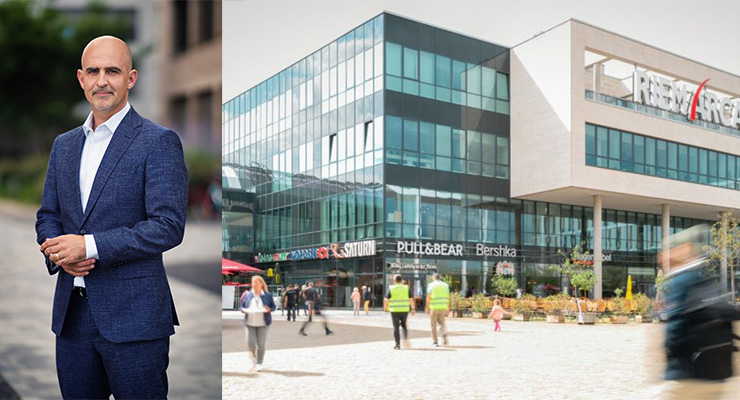ACROSS: WHY IS NOW THE RIGHT TIME TO THINK BIG? WHAT STRATEGIC MOTIVATION DO YOU SEE BEHIND THESE TRANSACTIONS?
STEFFEN HOFMANN: We are heading towards the beginning of a new investment cycle. This circumstance should encourage business leaders to rethink previous strategies and set new priorities for the future. The current market setting is certainly not without complexities. However, it’s also full of unprecedented opportunities.
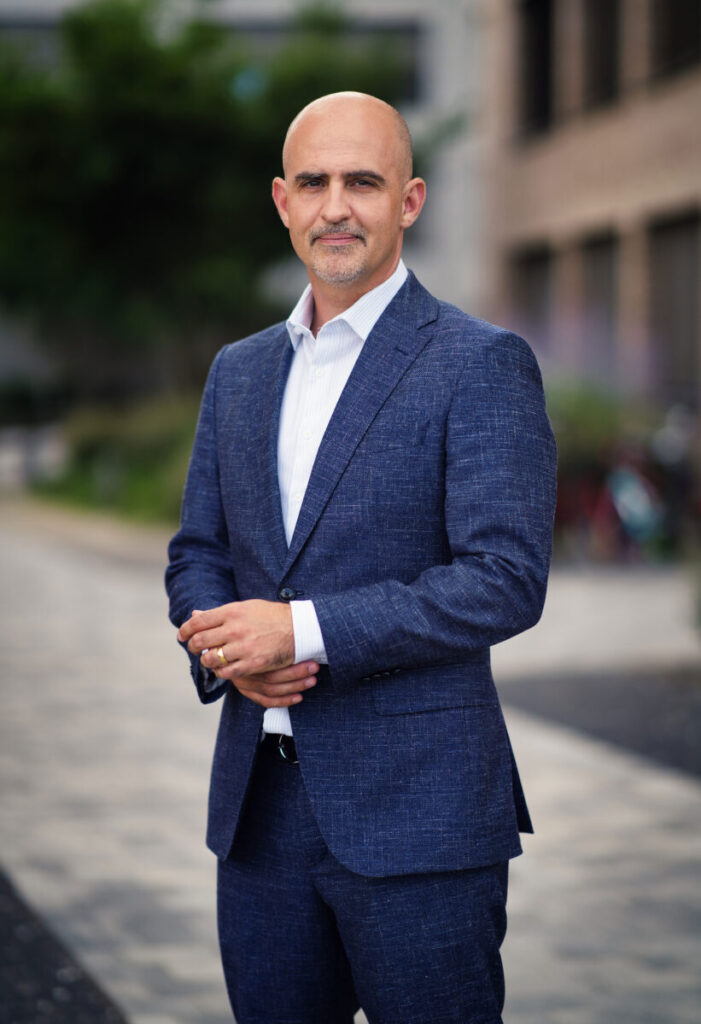
Steffen Hofmann
Managing Partner at ambas
In this context, bringing something to a desired ending, exiting a market, or simply no longer doing an old thing is important, too. By doing so, resources can be freed-up and energy can be directed towards strategic goals, thereby helping to unlock new growth opportunities.
Our society is exposed to a lot of negative thinking nowadays. We are bombarded with bad news every day. People feel the dark clouds hanging over them as they tackle the complex tasks on their desks. Without vision, people perish. That is why there is also a compelling soft factor that drives leaders to think big, demonstrate commitment, and follow through.
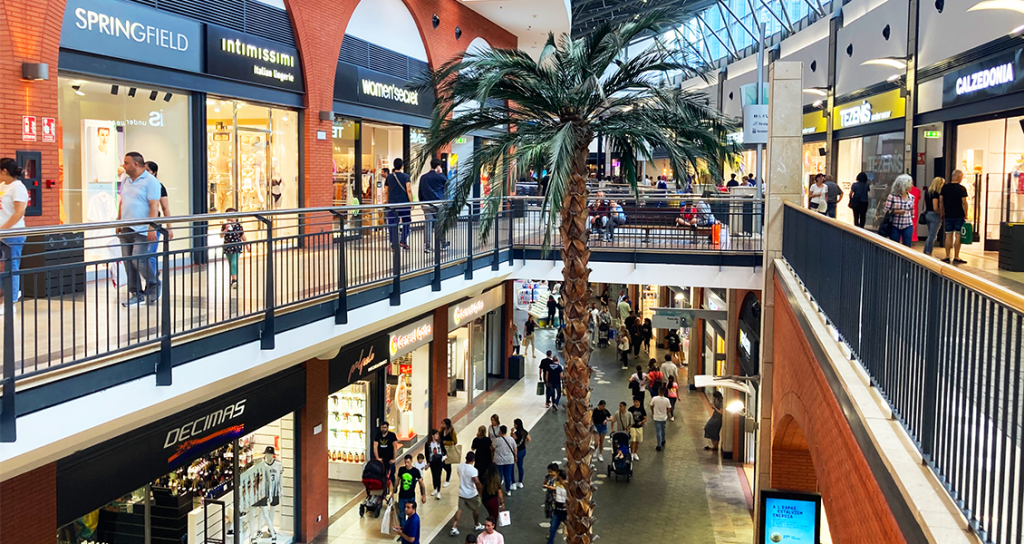
ACROSS: IN ACQUISITIONS OF OPERATORS SUCH AS ROS, DIFFERENT FACTORS COME INTO PLAY COMPARED TO TRADITIONAL REAL ESTATE PURCHASES. WHAT STRATEGIC CONSIDERATIONS GUIDE INVESTORS AND ADVISORS IN SUCH OPERATOR TAKEOVERS?
HOFMANN: Mergers and acquisitions are a way for companies to achieve inorganic growth by acquiring other companies or skillfully combining them to create a larger organization and achieve critical mass. This is also a useful strategy when companies plan to enter new markets or regions, secure unique expertise in specific areas, bring high-caliber teams of employees on board, and benefit from long-standing industry networks.
FREY, for instance, took a bold step in 2024 and entered the European outlet mall sector. The company was originally active in the retail park sector in France. Today, it is the European market leader in open-air shopping destinations, which include both retail parks and outlet malls. Through the strategic acquisition of the ROS platform, the company ensured that it had all the necessary core competencies. Since then, the team has successfully acquired an attractive portfolio of outlet malls in countries such as Germany, Italy, and Sweden. Today, the company is the third-largest outlet center operator in Europe, managing a portfolio of nearly 20 outlet centers across the continent.
Platform acquisitions can be game-changers. Without its decisive M&A approach, it would have taken FREY many more years to build everything from scratch. Just think about the most recent Sonae Sierra acquisition: It took them nearly 25 years to become the number two player in the German market as a third-party manager of prime shopping centers, with more than 20,000 sqm GLA per asset. I have just congratulated their German team on this breakthrough.
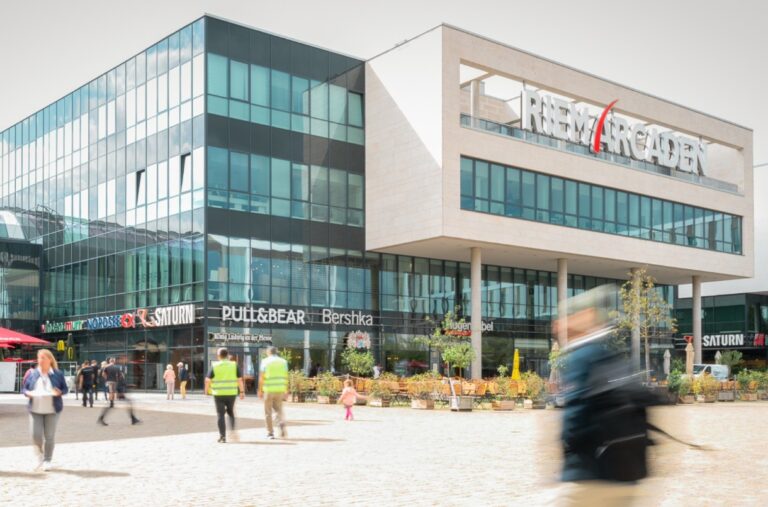
ACROSS: WHICH SEGMENTS OF THE RETAIL REAL ESTATE MARKET CURRENTLY OFFER THE MOST ATTRACTIVE RETURN OPPORTUNITIES – SHOPPING CENTERS, OUTLETS, OR RETAIL PARKS?
HOFMANN: Right now, resilient shopping centers and outlet malls show a very interesting total return profile. Grocery-anchored retail parks should remain good investment opportunities. They are lower yielding and offer more downside protection. Investments in single-tenant department stores are still perceived to be somewhat higher up the risk curve. The Signa collapse has left its mark.
ACROSS: HOW HAS THE CURRENT INTEREST RATE ENVIRONMENT AFFECTED TRANSACTION DYNAMICS?
HOFMANN: We often read that the availability of debt is the problem. I don’t necessarily agree with that view. Due to the lack of core and core plus buyers, the scarcity of equity is the true problem. Large deals take a long time these days because complex debt financing solutions have to be found to facilitate transactions.
The European Central Bank has lowered interest rates, so the main refinancing rate is currently just over two percent, which is low in a historical context. While this has certainly improved the affordability of debt in the real estate transaction market compared to 2023–2024, overall debt finance rates, including bank margins, still aren’t cheap. Both investors and financiers continue to expect higher risk premiums than in previous decades due to the uncertain global investment environment.
ACROSS: ESG WAS THE DOMINANT TOPIC FOR YEARS. NOW, WE ARE SEEING INCREASING INQUIRIES ABOUT ARTIFICIAL INTELLIGENCE. HOW DO YOU VIEW THIS DEVELOPMENT, AND WHAT ROLE WILL AI PLAY IN THE REAL ESTATE AND INVESTMENT SECTOR GOING FORWARD?
HOFMANN: Good observation! I actually noticed the same thing when preparing for a recent industry event. Whenever there is a big trade fair, we get lots of external inquiries with all kinds of meeting proposals from start-ups, but also from established consultancy firms. Between 2020 and 2024, such proposals were mostly related to the introduction of new ESG initiatives. This year, it’s clearly AI.

Without a doubt, the asset management of retail real estate will become even more digital and data-driven through the intentional use of AI as part of our daily work routines. However, the professional challenge will be to gain human intuition beyond the sober quotations of output of algorithms.
Incidentally, many ESG initiatives can be cleverly combined with AI.
ACROSS: WHO ARE THE MOST ACTIVE INTERNATIONAL INVESTORS IN THE GERMAN AND EUROPEAN RETAIL MARKETS AT THE MOMENT? WHY IS CEE MORE STRONGLY SHAPED BY DOMESTIC CAPITAL IN COMPARISON?
HOFMANN: It’s colorful out there at the moment. In the last 12 months, we have signed deals with underlying capital coming from Germany, France, Portugal, South Africa, and the UK. We are also working on some live transactions with bidders originating, again, from South Africa and the UK, but from Spain, Switzerland, and the USA as well.
In general, I would say that German capital is less active than in previous seasons but is likely to pick up soon. South African investors have now arrived in Europe and are here to stay. Investment managers from the UK and the US find the German market very interesting. However, we are also seeing more and more CEE funds looking for German pipeline opportunities.
The CEE transaction markets are very lively and are, indeed, seeing quite brisk market activity from domestic capital. Some global investment managers may currently be holding back on allocations due to perceived geopolitical risks. Regardless, asset KPIs in many CEE countries are impressive and are expected to continue to grow.
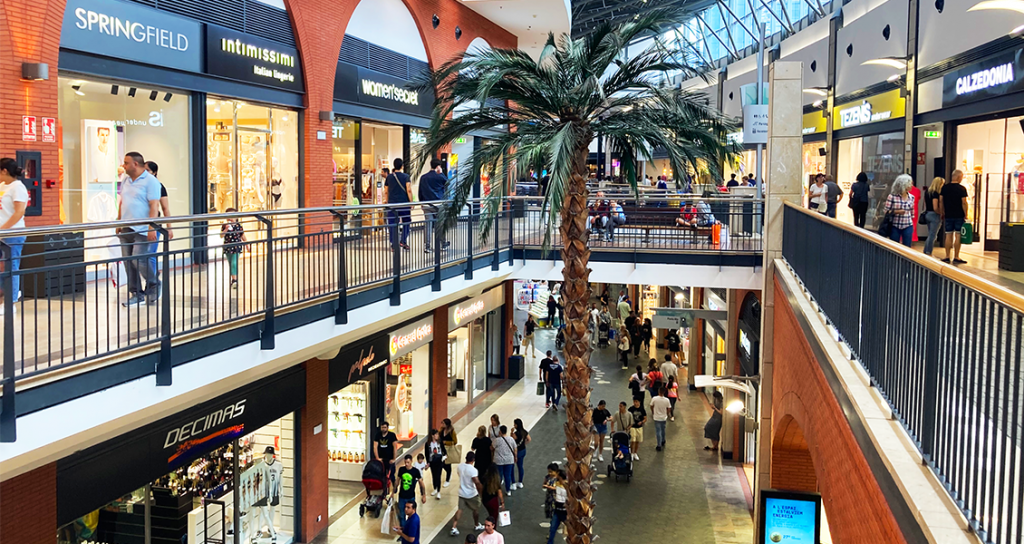
ACROSS: WHAT SIGNIFICANCE DO THE RECENT TRANSACTIONS HAVE FOR AMBAS, AND WHY ARE YOU CURRENTLY MORE ACTIVE ON THE BUYING SIDE THAN ON THE SELLING SIDE? TO WHAT EXTENT DOES OPERATIONAL KNOW-HOW GIVE YOU AN ADVANTAGE IN CORPORATE M&A TRANSACTIONS – AND WHAT GROWING ROLE DOES IT PLAY IN GENERAL?
HOFMANN: The resurgence of retail real estate as an asset class is indisputable. There are more than enough data points from the post-pandemic period that underscore the resilience of brick-and-mortar retail. Even though we have completed some cornerstone transactions on the sell side, such as the sale of Gropius Passagen and Espái Gironès, we are convinced that we are at the beginning of a new cycle. Entry cap rates appear quite attractive, so it makes sense for us to also be active on the buy side and advise foreign capital sources on their retail allocations in the German market.
On the operational side, we constantly support owners and asset managers of larger retail premises in the optimization of their operational set-up. On behalf of institutional capital, our team has run more than 30 different tendering procedures in countries such as Germany, Austria, Spain, Slovakia, and Hungary. The combined total tendering volume amounts to 1.15 million sq m GLA. Owners bank on our independence in that respect. We have no ambition to win our own tenders.
As a result of this very granular tendering service, we have gained a much better understanding of the operator side over the years. When operators today consider business development services or even M&A activities – regardless of the direction – they quickly realize that we have a comprehensive understanding of their business models, which is key when you want to create value in a transaction.
ACROSS: WHAT NEXT STEPS ARE YOU PLANNING FOR AMBAS?
HOFMANN: In addition to our real estate business, we will strengthen our advisory services for lenders, who often require an independent business plan review as part of the financial assessment when new business is generated or expiring loans are to be renewed. This year has shown that there is strong demand for this type of service in the banking sector.

